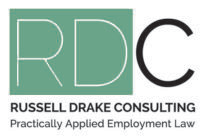In the midst of all the disruptions created in 2020 by the Covid-19 situation, we should not lose sight of the fact that many of our standard Human Resource processes still need to be continued. For many employers, 2020 has been largely focused on reacting to the crisis facing the business environment and doing all that is needed to enable the business to remain sustainable. This has resulted in significant sacrifices being made by both employers and employees over the last six months however in the midst of this context, it is still important to undertake the usual review cycles. Many staff will still hold the expectation that an annual review will occur.
In raising this issue, it is important to differentiate between the annual review of performance and the review of the employee’s remuneration rates, although many people may see these as one and the same.
Despite how the business may have performed, or underperformed, during 2020 ensuring that a formal review of the employees on-the-job performance is conducted should not be overlooked as this is the key tool to enable the employer to refocus the employee, or provide recognition for their efforts.
The core elements of an effective performance review remain:
- Does the employee have the right knowledge to competently complete their role and if not, what needs to be implemented to enhance the knowledge deficient?
- Does the employee have the required skills to proficiently undertake all duties and responsibilities and if not, what further development needs to occur to enable them to acquire those skills?
- Does the employee consistently demonstrate the right attitudes and behaviours in all aspects of their role to enable them to meet the expectations of the workplace and if not, what is preventing this from occurring?
- Does the employee need new challenges to keep them engaged and if so, how can these opportunities be provided?
The review process should take the form of a natural conversation, where both parties have the opportunity to discuss and comment on the above aspects however, many employers struggle to have these conversations and as such seek to avoid the review meeting and process altogether. On the other hand, although the employee may want to have a review, previous experiences may have left them wary or sceptical about the experience.
If you do not customarily undertake a regular review process with your staff, starting the process need not be a burden for you as a simple templated model may be all you need to initiate the review discussion. Providing the template to the employee in advance will enable them to prepare for the meeting and will remove the anxiety associated with ‘speaking about themselves and their performance’.
However, the real value in the review is the agreed outcomes and expectations, as these provide direction to the employee for the next period and provide a benchmark for the employer to monitor any required improvements or corrective actions. This therefore needs to take the form of a mutually agreed outcome letter.
If you currently do not use an annual review process with your staff, or question whether your existing process adds any value, feel free to give us a call.
In our next newsletter we will outline the current thinking with respect to remuneration increases in a post lockdown world.

